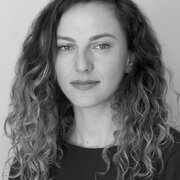Interviewed & Written by Sana Rizvi
Guided by folk music, Filmmakers Ava Porter & Farhad Akhmetov ‘s incredible documentary Wild Honey gives us rare access to the cultural communities of five regions across Eurasia: the Muslim Bashkirs of the Southern Ural Mountains, the Christian Molokans of the Caucasus, the Orthodox Cossacks of the Southern Steppe, the Jewish Ashkenazim and Krymchaks of the Black Sea, and the Shamanistic Altaians of Central Siberia. Explore the harmonious universality of musical expression in this rapturous ethnographic look at traditional Russian folk music.
Watch Wild Honey and the entire selection of films from the programme online from 15-25 October as part of the WOMEX 20 Digital Edition.
Wild Honey Trailer
How did this project come about?
Ava Porter: Farhad's father, Murad, was a composer and ethnomusicologist who spent many years collecting music in Bashkortostan in the 1970s and 80s. We created this project in his memory, in a sense taking up his work where he left off.
Could you share any interesting anecdotes while making the film?
Ava Porter: We experienced incredible hospitality in Russia. Of the many nights we spent filming in small villages, we stayed in a hotel only twice. Other than that we stayed exclusively in people's homes, often after only having met them once.
On our first overnight trip to a village, our host invited their extended family to join us. When it was time to go to the Banya (Russian Sauna) around 8PM, Farhad told me the men were going first, but they would be no more than an hour, and then the women would go. He asked me if I would be alright (I hardly spoke any Russian at the time, and our hosts spoke no English) and I said I would be fine. The men returned at 9 and then I took my turn in the Sauna with the four other women in our party. Despite sharing very little language in common, we had a lovely time. When we returned to the house, arms linked and laughing, Farhad looked at me, amazed. "What did you do in there for so long?" he asked. "What do you mean?" I responded. He pointed at the clock. It was midnight.
Tell us about your creative process and your approach to the film.
Ava Porter: This project was strictly vérité. We didn't shy away from interacting with our subjects, but we tried our best to remain quiet observers as much as possible. As a crew of only two and, particularly, as a married couple, it was easier for our hosts, many of whom were very traditional, to accept us into their domestic spaces than if we had been a typical camera crew. Once with our subjects, we spent time first getting to know everyone and then, eventually, I would lift my camera. Farhad, who is a native speaker, did all of the talking and it was easy for me to fade into the background. Though it was definitely technically challenging to produce a film with such a small team, the access we gained was worth it, and I think we ultimately achieved our goal which was, simply, to show the beauty of everyday life.
How has making a music-related documentary been different from your other projects?
Ava Porter: This is our first film together. We are both artists who have worked together and separately on projects spanning painting, sculpture, photography, performance, and installation. However, we are both from musical families (Farhad's father and grandfather were both composers in Russia and my father's family were Klezmer musicians before they moved to America), so I think this type of work has a substantial precedent in both of our lives.
Any new projects you are working on that you would like to share?
Ava Porter: We are working on a couple of projects right now. One is another documentary in Russia which is in the early stages of pre-production. The other is a narrative feature that takes place in Greece during World War II. Neither are directly about music, but music will certainly be integral components of the final works.
What music are you listening to right now?
Ava Porter: We are loving Acquaria Drom right now. Their song "Thessaloniki" is on a loop as we write the screenplay for our Greek film. We are also playing a lot of Dakhabrakha, Otava Yo, and Argymak to keep up with our Russian roots. Mulatu Astatke, Milton Nascimento, and Odetta have also been on heavy rotation this summer. Eye of the Storm by Shahar Mintz has been a great song for melancholy quarantine moods.
In what or where do you find hope in these current times?
Ava Porter: In art. Always in art.
Is there anything I’m not asking you that you always wish people would ask you about the film?
Ava Porter: No, not really.
What do you hope WOMEXicans take away from the film?
Ava Porter: We hope that, through Wild Honey, viewers are able to see some of the ways that music is a universal and shared human experience, irrespective of religion, ethnicity, or nationality.
WATCH FILM!
FROM THE 15-25 OCTOBER 2020 WITH YOUR WOMEX 20 DIGITAL REGISTRATION.
article posted by:Sana Rizvi, Piranha Arts



